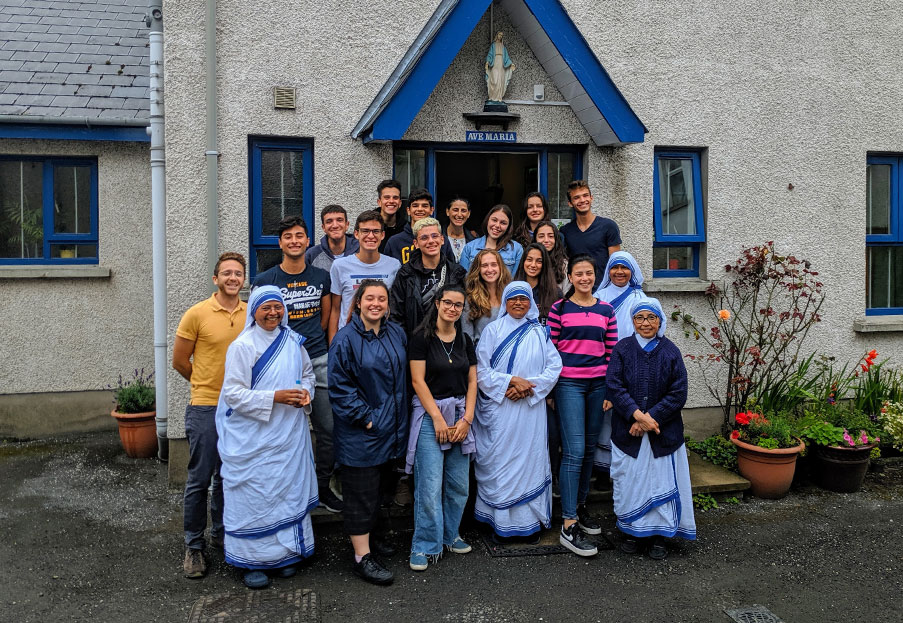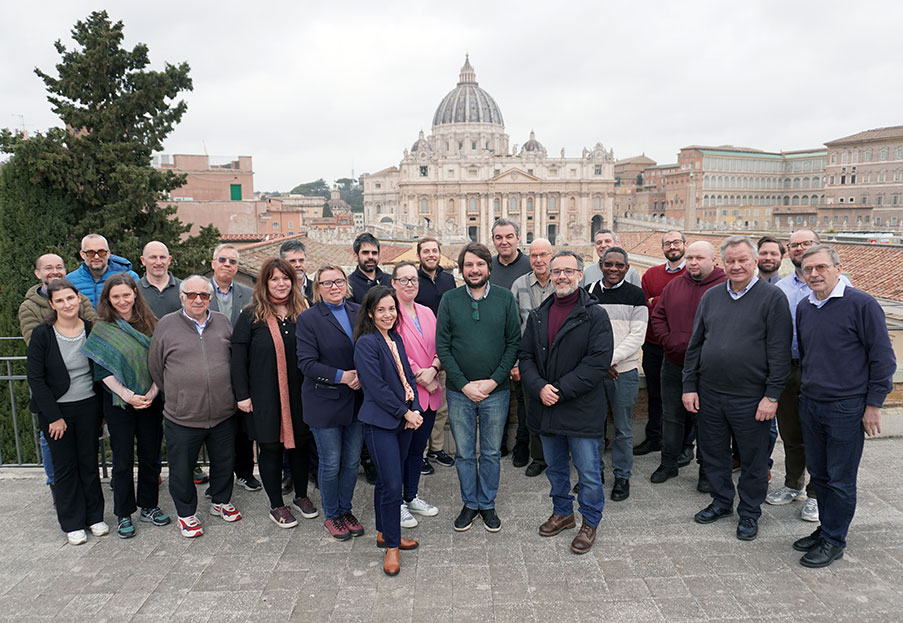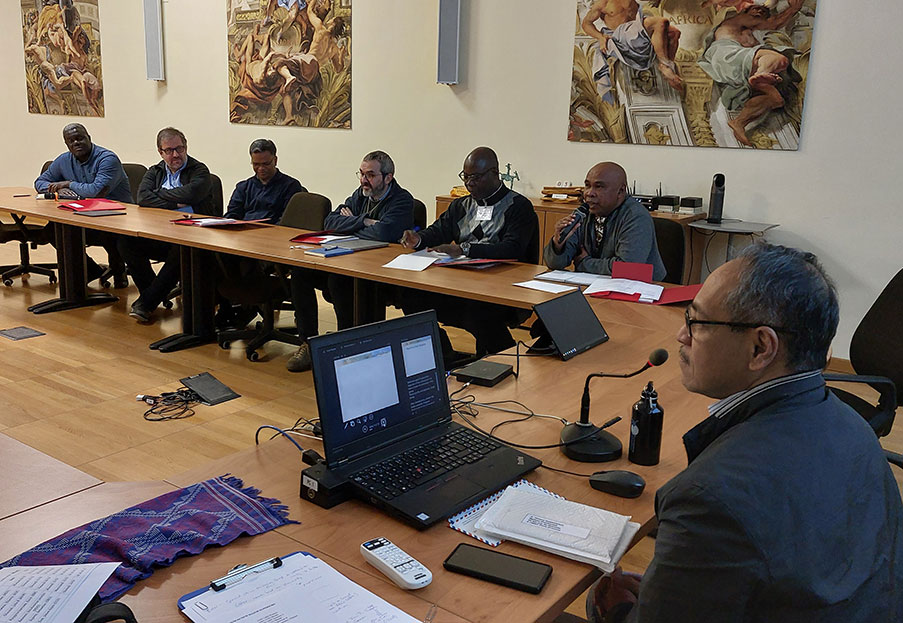Antuan Ilgit: the Turkish Jesuit who lived through the earthquake
“On 6 February, the earthquake surprised me in Iskenderun. I had celebrated Sunday evening Mass in the cathedral with the Christian community made up of Latin Catholics, Maronites, Melkites, Armenians, Arabs, neophytes and Turkish catechumens, and I had gone to bed with all the appointments and plans for the next day in mind. The earthquake at 4:17 changed everything. After two minutes of earth shaking, the cathedral had disappeared! In the courtyard of the bishop’s residence, nothing remained but destruction, death and tears.
Together
with three cloistered nuns who had recently arrived from Argentina and New
Zealand, a Hungarian Focolare woman and a volunteer from Genoa with whom we form
a ‘community,’ we started to welcome the people who were taking refuge in our
house. In constant contact with our bishop, Paul, a Jesuit, and the director of
Caritas Anatolia, John, without electricity, water and gas for the next 15
days, we ‘miraculously’ welcomed hundreds of people. We distributed thousands
of hot meals to victims of different faiths, without distinction. We
experienced Providence: we immediately distributed what we had received and
more food was always on the way! God never made us lack anything!”
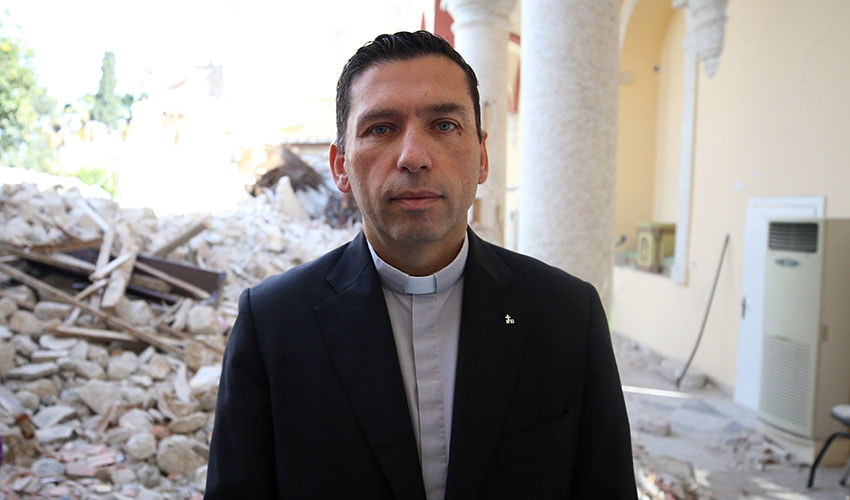
This is how Fr. Antuan Ilgit expresses his painful experience of the earthquake that devastated parts of Turkey and Syria in February. Fr. Antuan is Vicar General and Episcopal Chancellor of the Apostolic Vicariate of Anatolia in eastern Turkey. He is also responsible for youth and vocations ministry for the whole of Turkey on behalf of the Turkish Episcopal Conference (TEC). He is the only Turkish priest serving the Vicariate and the whole Church in Turkey. He is part of the Jesuit community of Ankara but serves the Vicariate, under the responsibility of a Jesuit bishop, which is about 650 km from Ankara.
Born to Turkish immigrants in Germany, he came into contact with the Jesuits in Ankara through lectures on inter-religious dialogue. He was struck by both the high level of academic preparation of the Jesuits and their great simplicity. He says: “I saw there a model to better live the Christian faith and to announce the joy of the Gospel to my compatriots.”
On
the subject of the earthquake, he adds: “The number of dead - the official
figure - is about 50,000; of these, 20,000 are from the province of Hatay,
where the headquarters of the Apostolic Vicariate of Anatolia is located, in
the city of Iskenderun (formerly Alexandrette), where some 250,000 people live.”
According to him, the earthquake highlighted what was already being experienced
there: the unity of the Church in Turkey, a very small Church. All the Latin
dioceses of Turkey, the Orthodox, the Armenians and the Protestants came to their
aid “because,” he says, “‘we are all brothers’ and, as the Holy Father teaches
us, ‘no one is saved alone’.” Father Antuan saw how everyone forgot their own
pain to help those who needed it most. “This,” he added, “made me feel the
presence of God in the midst of this terrible tragedy.”
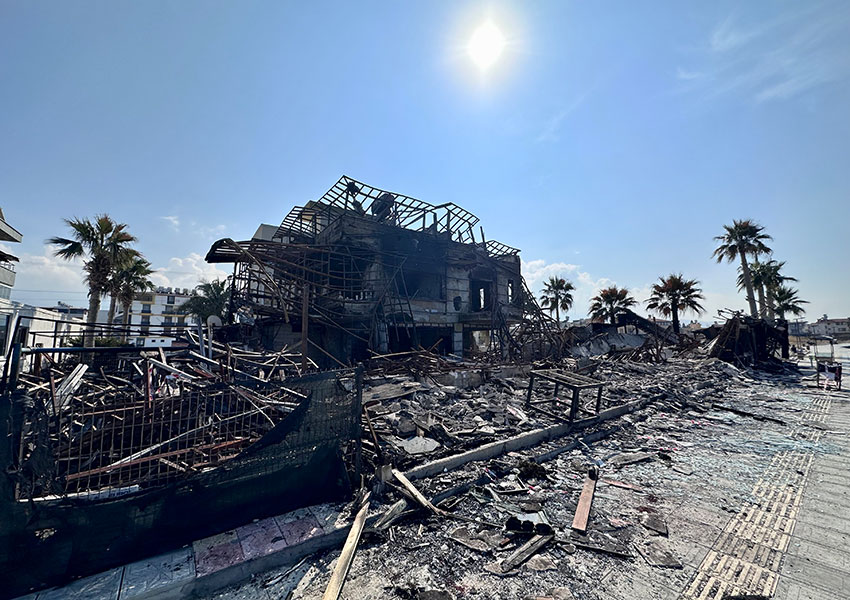
It was a powerful spiritual time for Antuan and those who participated with him in the relief effort. “Every day, with the rest of the Christian community, we celebrated the Eucharist, which has always been at the center of our daily life and strength. Thus, I have always had the feeling of being part of a ‘universal body’, accompanied by the universal Church and the universal Society of Jesus. Even though I was the only Jesuit present in the heart of the earthquake, I never felt alone, but always accompanied by communion and prayers.
“Today,
the tragedy is not behind us. We have a lot of work to do to rebuild! To
rebuild - and not only buildings - we will have to gather our faithful
scattered all over Turkey in search of a safe place, heal their wounds and keep
them united in the hope that the earthquake will not have the last word. We
know that the Lord is risen and that Easter is near!”

